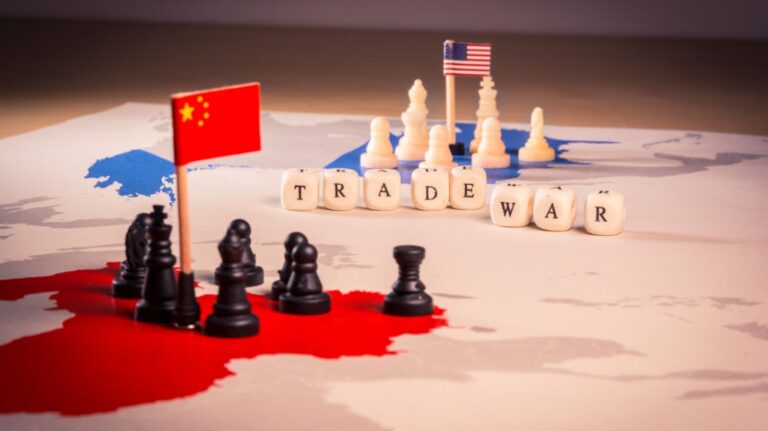The US presidential election is on the horizon, with the primaries in full swing and the polls to decide the next president set to open on 5 November 2024.
There has been a lot of talk surrounding tariffs on China, specifically from Republican frontrunner and former president Donald Trump, prompting concerns in international supply chains over the import of goods into the US.
In an interview with Fox News, Trump said: “Obviously I’m not looking to hurt China. I want to get along with China. I think it’s great. But they’ve really taken advantage of our country.”
In the same interview, responding to claims he was considering a 60% tariff on imports from China, he said: “I would say maybe it’s going to be more than that”.
In March 2018, the Trump administration introduced 25% tariffs on steel imports and 10% on aluminium imports. China responded with tariffs of up to 25% on over 100 US products.
That marked the beginning of a lengthy trade war between the US and China. It followed a tweet posted by Trump that included the phrase: “When a country (USA) is losing many billions of dollars on trade with virtually every country it does business with, trade wars are good, and easy to win.”
His recent comments regarding tariffs and the roll-out of his proposed “America First” trade policy seem to suggest that this is not a matter on which he has changed his mind since his time in office.
Earlier this month [March 2024] Trump became the last Republican candidate in the race, making him the favourite to represent the party on the ballot sheets in November. However, the four criminal cases against Trump that are yet to go to trial cast some doubt over this.
CNBC recently reported that global logistics companies have told the broadcaster that they have already begun planning for the potential of increased tariffs should Trump be elected.
One common theme that seems to be a consideration for many companies importing goods to the US from China is the key role that Mexico can play in the supply chain. Speaking to CNBC, Beth Whited, president of rail freight company Union Pacific, said: “People [are] really rethinking their supply chain, saying they’d rather have some of these things a little closer to home, and investing in Mexico for growth.
“We are very well-positioned to do that. [Mexico] is a big part of our business, and we are thrilled at the opportunity to take advantage of nearshoring as the investment in Mexico continues.”
A similar sentiment was shared by Paul Brashier, vice president of drayage and intermodal at ITS Logistics, who told the broadcaster: “There are some really good ongoing discussions with some very forward-thinking clients of ours that are using the ocean to bypass the Trump tariffs so I think the future is going to be exporting from East and West into Mexico.
“If you’re looking at a Trump presidency, you can’t have both China and Mexico be your enemy. So I’ll be interested to see what side folks land on in that in that administration. I feel like Mexico is going to be the future. I just think that the relationship between the US and China is something that is going to be difficult to repair.”
Global shipping and logistics company Maersk recently announced the opening of a new c. 323,000ft² facility in Tijuana, Mexico, with the conglomerate ‘recognising the immense potential of Tijuana as a key player in trade between the US and Mexico’.
According to statistics from the US Census Bureau and the US Bureau of Economic Analysis, Mexico became the biggest importer to the US in 2023, with imports totalling a value of US$475.6 billion.
It overtook China in import value, with total imports from China to the US in 2023 valued at $427.2bn. This represents a 20.3% decrease on 2022, while the value of imports from Mexico grew by 4.6% in the same time.
This trend continued into January 2024, when imports from Mexico exceeded those from China in value by nearly $2.25bn.
As the election draws closer and more is revealed about the candidates and their international trade policies, those involved in global supply chains will be keeping a close eye on the relationship between the US and China. With two of the biggest global economies going head to head, there are always going to be implications on supply chains.
Following the undeniable success of IntraLogisteX 2024 in the UK, the exhibition is heading across the Atlantic later in the year, with IntraLogisteX USA taking place on 22-23 October 2024 at Miami Beach Convention Centre. Click here for more details and to register!







